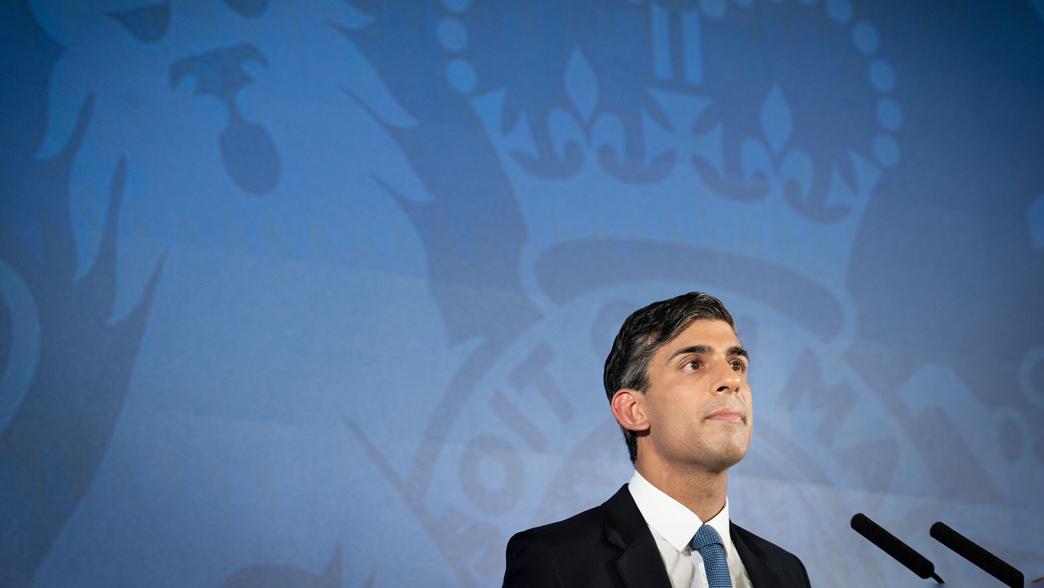Whitehall Monitor 2023 (Conclusion): The year ahead
The ways in which the civil service should change to better serve the UK in 2023 and beyond.

Managing tight budgets and workforce morale will be a key test for civil service leaders
The government is planning to cut spending on departmental administration by 8% by 2024/25. Unless plans are updated in the spring budget, departments’ pay bills are still expected to be cut even more starkly – a 25% fall in two years. Even if those plans shift now that Rishi Sunak has dropped the target of cutting 91,000 roles from the civil service in favour of a more nuanced approach to efficiencies, departments will still face difficult decisions about how to manage tight administration budgets during a period of high inflation.
This will be a key test for civil service leaders in 2023. The pressure to meet the 91,000 target has eased, but efficiencies are still on the table and it will be for departments to decide the best way to manage their budgets while safeguarding their capabilities. This will not be easy. A decade of real-terms pay cuts, a period of acute inflation and a winter of industrial action across the civil service have demonstrated how difficult the government will find maintaining pay restraint as a method of making savings in 2023.
This context is affecting the morale of the civil service workforce, which declined in 2021 and 2022 for the first time since 2015, further weakened by a year of strained relationships between ministers and officials. Good morale and engagement are integral to how well the civil service performs and to the talent it can attract and retain. Civil servants who feel valued, supported and developed are more likely to achieve ministers’ objectives. Creating the environment to improve morale will be the other key test of civil service leaders in the year ahead.
The civil service’s work will be affected by Sunak’s performance in parliament
The civil service is responsible for implementing ministers’ priorities – but these will in turn be heavily determined by what the Sunak government is able to pass through parliament. The difficulty of Conservative Party parliamentary management in 2022 set the terms for what the Johnson and Truss governments could, and could not, achieve. Record levels of ministerial resignations brought Johnson down in July; by October, chaos in the division lobbies following a vote on fracking accelerated Truss’s downfall. 4 Brown F, ‘Chaos among Tory MPs as Labour motion to force vote on fracking bill is defeated’, Sky News, 20 October 2022, retrieved 14 December 2022, https://news.sky.com/story/chaos-among-tory-mps-as-labour-motion-to-force-vote-on-fracking-bill-is-defeated-12724777
Sunak has succeeded in slowing the pace of Westminster’s political drama, the government’s working majority remains above 70, and its control of the order paper gives it some ability to affect how controversial bills are put to MPs. Nonetheless, his government must recognise that its priorities continue to be determined by what its increasingly restive and organised backbenchers – many of whom backed the prime minister’s rivals throughout 2022 and have developed a taste for rebellion – will tolerate. This will continue to shape the priorities for the civil service in the two years remaining of this parliament.
At the end of 2022 Sunak was forced to give in to backbench rebellions on onshore wind and housebuilding. As the government returns to difficult manifesto pledges including planning reform, and seeks to use legislation to make progress on new pledges such as Sunak’s commitment to legislate on small boat crossings, parliamentary numbers will continue to determine how much the government can deliver before the next election.
Reform took a back seat last year – leaders should revive momentum in 2023
After the publication of the Declaration on Government Reform in the summer of 2021, efforts to reform the civil service, and government more broadly, lost momentum amid the political turmoil and ministerial churn of 2022. Some areas, which enjoyed continued ministerial support, managed to make progress, such as on public bodies and appointments, relocating officials outside London and improving the training and development offer for civil servants. But many others stalled or made slower progress, such as in reducing churn of officials between roles, improving external recruitment and interchange, or mapping and replacing legacy IT.
Reform is crucial to making government more effective in the future. Now that the ministerial ranks are, for the time being, more stable, Oliver Dowden and Jeremy Quin – the two ministers in the Cabinet Office responsible for reform – should demonstrate their commitment to the agenda and refresh momentum behind the unmet aspirations in the declaration. They and civil service leaders should go further: for example, by plugging some of the gaps left by the 2022–25 diversity and inclusion strategy, going further to spread best practice in policy making and evaluation, and taking concrete steps to improve external recruitment and interchange. They should safeguard the progress being made by the Government Skills and Curriculum Unit and towards key digital reforms such as GOV.UK One Login, which stand to make the civil service more efficient in the future. Beyond that, the civil service should use the lessons of 2022 to build a strategic case for long-term improvement and reform.
- Topic
- Civil service
- Keywords
- Civil servants Civil service reform Government reform Government transparency Government communications Budget Public sector
- Administration
- Sunak government
- Department
- Cabinet Office
- Public figures
- Rishi Sunak
- Tracker
- Whitehall Monitor
- Publisher
- Institute for Government